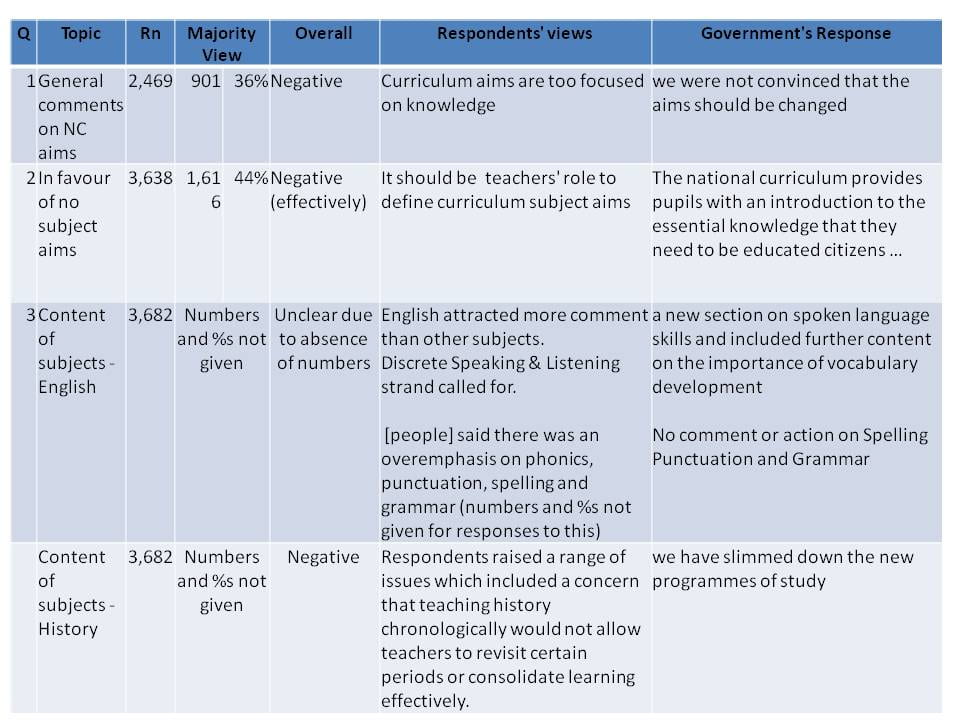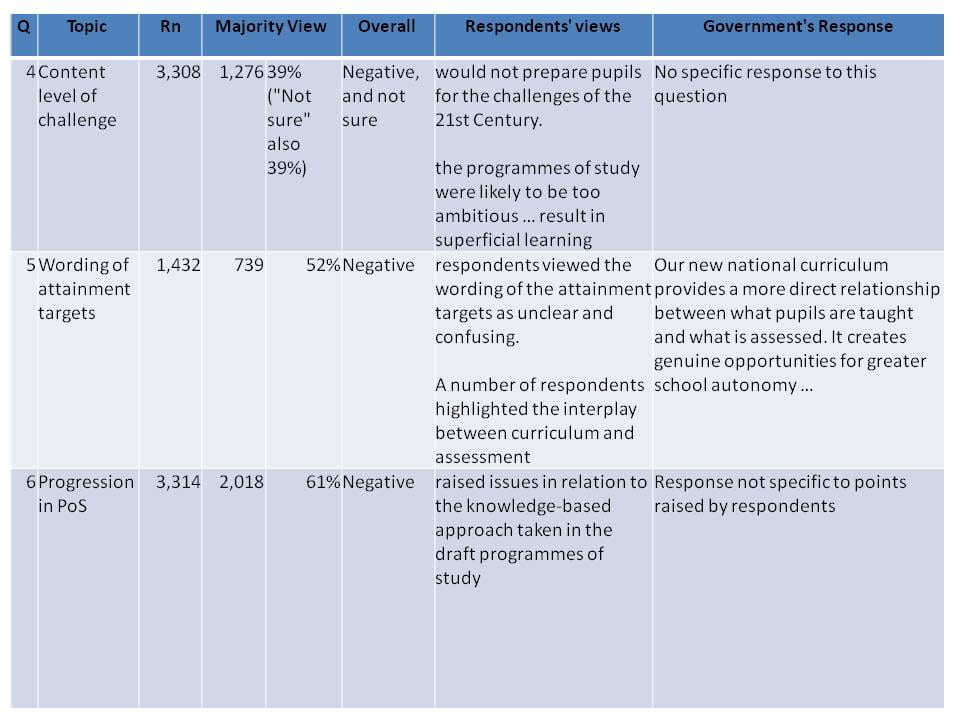20 November 2012
By Andrew Pollard
A picture of the proposed 2014 National Curriculum for England is gradually emerging. Draft versions of secondary English, maths and science and information about foundation subjects have recently slipped into the public domain. We have had the Early Years Foundation Stage requirements since March, and proposals for primary English, maths and science since June.
So what does this begin to add up to? How is the Department for Education envisaging the curriculum as a whole, through which learners will progress from birth to 16?
On the one hand, we have the core curriculum for primary schools which is spelt out in immense detail with 52 pages for English, 31 for maths and 40 for science. On the other hand, one might feel reassured that the Secretary of State does intend to honour his promises to reduce the amount of curricular prescription and give “schools and teachers more freedom to decide how to teach most effectively”. For example, the entire five years of the Early Years Foundation Stage is covered in six pages and it appears that each foundation subject (such as geography, art and PE) is to be described entirely in just two pages covering at least key stages 1-3. With a little more detail, secondary English has been leaked with 6 pages, maths 7 and science 17 – though there may be changes and we can expect exam boards to elaborate.
The apparent brevity of many of these drafts is not necessarily problematic, for it is possible that powerful concepts and significant topics could be identified by rigorous selectivity. Teachers would be able to build on these. However, it may also be that it is a step too far to limit foundation subject descriptions to just two pages to cover so many years of primary and secondary education – it certainly appears remarkable. With the fragmented information which is available right now, we cannot really judge such matters.
Nor is it clear how Ministers’ apparent decision to devolve drafting responsibility to handpicked individuals and organisations, as described in a recent Guardian article, will pan out in terms overall curriculum coherence. It is to be hoped that their work is being structured by a framework of principles for curriculum design and by a clear statement of overarching aims for the National Curriculum. If documents on these issues exist, they should certainly be published. The report of the Expert Panel, to which I contributed, indicated the importance of such aims and principles, but it is not clear whether these issues have been followed up.
But perhaps the most striking feature of the emerging picture is the extraordinary unevenness in the degree of specification. If appearances do not deceive, it seems that primary English, maths and science at Key Stages 1 and 2 may be spelt out, on average, in over 30 times more detail than is expected for each foundation subject over the same key stages. As things stand, they will be specified in 4 times more detail than for the same subjects in secondary education.
So what is going on? Why is there this huge discrepancy between light touch and centralist prescription? Why is it that primary teachers, in particular, must to be told what to do in such detail? The benevolent explanation is that Ministers are so committed to raising standards in “the basics” that they really, really want to set out high expectations and leave no room for doubt about what is expected. New Labour Ministers were similarly committed when they introduced the National Strategies.
But in relation to these issues, both recent governments have transformed their commitment into policies which seem authoritarian and educationally inappropriate. The key point which has not been understood is that a national curriculum must be designed to facilitate learning, and that this is not the same thing as specifying subject content for teaching.
In Chapter 1 of the report of the Expert Panel for the National Curriculum Review, we spelt this out in very simple terms. We described how education is the product of interaction between socially valued subject knowledge and the personal development of individuals, as facilitated by expert teachers. We explained that teachers therefore need scope to exercise professional judgement to meet the diverse needs of pupils and that over-prescription would thus undermine the effectiveness of teaching. A National Curriculum specification, in other words, must be pitched in ways that are carefully judged to support learning processes rather than overwhelm them.
At a meeting with Michael Gove, I constructed the “whole curriculum” model described in both Chapter 1 and the concluding summary of the Expert Panel Report. He appeared to understand the issues, for he is extremely quick to appreciate arguments. He will, then, realise that the level of prescription presently proposed for primary education is likely to be counter-productive. During the primary years, when establishing good attitudes to learning complements the achievement of excellence in basic skills, micro-management of classrooms by curriculum dictation from Whitehall would be a serious error. It is very surprising to see the Coalition repeating New Labour’s mistakes in this respect, albeit in rather different ways. It may be that significant reclassification into non-statutory guidance could help in part, but the difficulties really need more fundamental resolution including removal of year-on-year prescription.
There can be no doubt that the curriculum should offer breadth and balance. Indeed, the DfE’s own analysis of international evidence (pdf) showed conclusively that high performing jurisdictions preserve a wide range of subjects from ages 5 to 16. Such breadth was also a firm recommendation of the Cambridge Primary Review and Ofsted reports have reinforced this point many times over the last decade. And of course, breadth and balance are protected by the general requirements of Section 78 of the Education Act, 2002.
However, the much criticised decision to exclude music and art from the secondary EBacc already flies in the face of this evidence, and we may be close to arriving at an even more constraining outcome for primary education. The Secretary of State and his Ministers and officials are highly intelligent people, so when they suggest that ‘schools can choose how they include other subjects’ they know perfectly well that they are creating structures and high stakes incentives which will direct behaviour in different ways. Already, the pattern of subjects studied at Key Stage 4 has significantly narrowed and Ofsted reports published since September using the new Framework for School Inspection offer almost no discussion of pupil achievement in any subject outside the core curriculum.
We must assume that the Coalition Government and its Ministers mean well. Sadly, their present policies lead in the direction of a narrow and imbalanced curriculum for maintained schools. If implemented, this will be a personal tragedy for millions of children and a national tragedy for us all.
Of course, many independent schools provide superb breadth and balance in their curricula and, in present circumstances, it is no wonder that the academy opt-out is very tempting – for schools can then make their own curriculum decisions. But fragmentation of the system seems a very strange way to provide educational entitlements. Sadly, despite the rhetoric of choice and opportunity, these processes are likely to deepen inequalities in our societies.

 Close
Close






